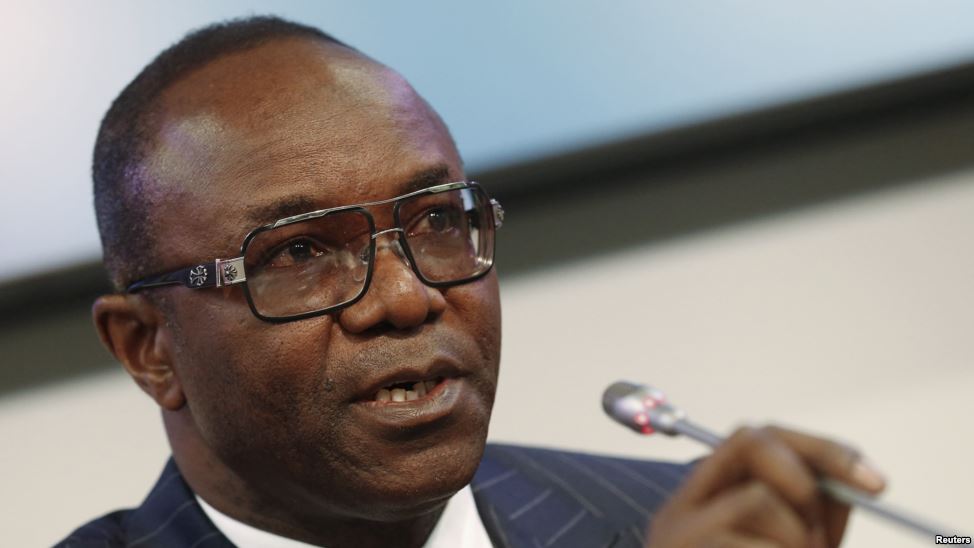- FG to Settle $5bn JV Debt With Crude Oil
The Federal Government has reached an outline settlement to resolve a protracted dispute with Western energy companies, under which the groups will be paid $5bn to cover exploration and production costs.
Royal Dutch Shell, ExxonMobil, Eni, Chevron and Total have signed deals relating to the settlement of costs incurred between 2010 and 2015, as they also seek to forge new financing arrangements for their joint ventures in Nigeria, the Financial Times reported on Tuesday.
The settlement, which will be a haircut on the over $6bn the oil majors claim they are owed by Nigeria, needs the approval of two government bodies and the final sign-off from President Muhammadu Buhari.
The Minister of State for Petroleum Resources, Dr. Ibe Kachikwu, told the Financial Times that the settlement had been accepted by the five companies and that he was hopeful that the deal could be finalised before the end of the year.
Western energy companies have taken the lead role in pumping crude from the country, but they have done so in joint ventures with the Nigerian National Petroleum Corporation, the state-controlled oil group.
Exploration and production costs are supposed to be split in the partnerships between the two sides, but the companies have accused the NNPC of failing to pay its portion of the expenses, and this has prompted the groups to hold back on vital investment.
The NNPC has repeatedly queried the amounts it owes the western companies, but the settlement is an attempt to draw a line under the dispute.
Aside from security concerns in the Niger Delta oil hub, this has been the biggest single hindrance to exploration and production.
Oil is the backbone of Nigeria’s economy, and the country has been hit hard by the collapse in crude prices since mid-2014.
The joint ventures between the western energy companies and NNPC are a major contributor to the country pumping more than two million barrels a day, most of which is exported.
In the past, the western oil companies have had to claim the money they were owed for costs run-up in the partnerships from the Federal Government accounts that were also used to fund state spending, meaning payments were often delayed in times of crisis.
Nigeria’s financial obligations to the joint ventures, known as “cash calls,” have long been a problem but are now viewed by the government as a particular burden as the country’s economic crisis bites.
According to Kachikwu and people close to the western companies, the $5bn of payments will be made in the form of barrels of new crude production over the next five years.
The settlement also addresses $1bn the majors say is due from the NNPC for costs incurred this year in the joint ventures. The groups are expected to receive a one-off cash payment from the government to cover this amount.
People close to the western energy companies and the NNPC said both sides have agreed in principle to new financing arrangements, starting next year, that involve the setting up of an escrow account for each joint venture, from which costs can be recovered and taxes paid to the state.

 Forex2 weeks ago
Forex2 weeks ago


 Naira2 weeks ago
Naira2 weeks ago
 Naira4 weeks ago
Naira4 weeks ago
 Billionaire Watch1 week ago
Billionaire Watch1 week ago
 Company News4 weeks ago
Company News4 weeks ago




 Naira2 weeks ago
Naira2 weeks ago




 Naira1 week ago
Naira1 week ago




 Naira4 weeks ago
Naira4 weeks ago






















